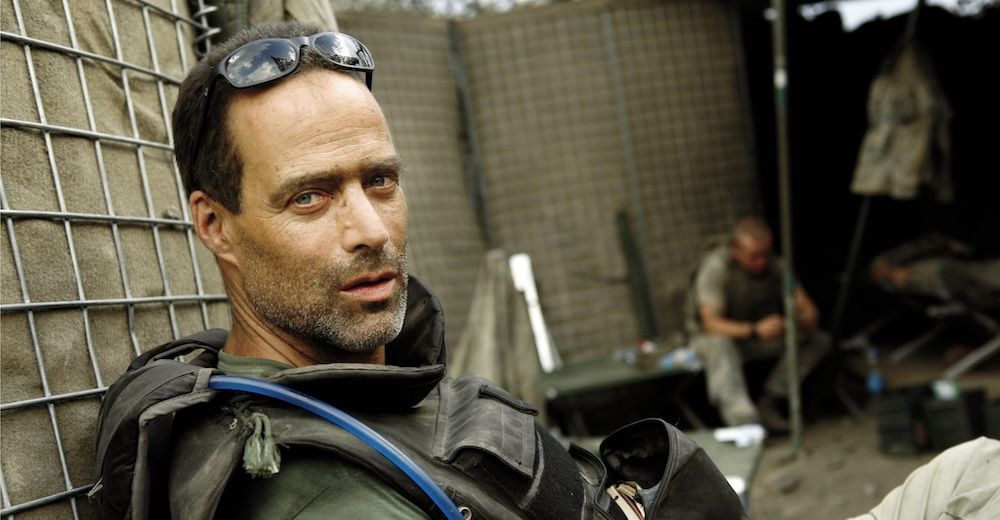
Book Review: In My Time of Dying
Over the past four decades, journalist Sebastian Junger has routinely cheated death in warzones and fiefdoms in Afghanistan and Nigeria. His documentary collaborator, Tim Hetherington, died from a shrapnel wound while on assignment in Libya. But the last time death almost came for the author of grizzled “men at work” chronicles like The Perfect Storm, he was on vacation during the summer of COVID at a bucolic Massachusetts cabin while suffering from a rare and undiagnosed pancreatic aneurysm.
Before that day, Junger never really gave eternal life much thought. His father was a lauded physicist who often brushed up against his mother’s New Age ways. So it came as quite the surprise that Junger’s only tangible memory during his time in the ICU was his deceased dad hovering over his bed talking about the steps one takes after their time on this mortal coil.
As he did for capsized fishing boats and PTSD-laden veterans, Junger put his journalistic skills to work upon his recovery for his latest book, In My Time of Dying: How I Came Face to Face with the Idea of an Afterlife. Part midlife memoir, part enthralling physics tome, it’s an impressive mix of faith, science, and reason that charts the marvels of the universe and a place in it we have attained against all logical odds.
One of the last journalists left who still believes in the vocation’s founding pillar of objectivity, Junger never makes a case for the afterlife or God; he merely lays out the facts. At times, he seems guilty to focus so much on himself–especially when he’s devoted his career to soldiers and salt of the earthers. “The extra years that had been returned to me were too terrifying to be beautiful and too precious to be ordinary,” he writes about the burden of privilege to keep clocking in at the offices of Vanity Fair.
In My Time of Dying is not a conversion narrative. In fact, its entire purpose is to integrate strains of religious thought into the particulars of a vast and unknowable nature. During his interviews with multiple theoretical physicists, Junger comes to the conclusion that anything is possible–a more evidence-based illustration of an offhand remark his wife made to him during his recovery: “I have zero disbelief.” Ever the journalist, Junger plans to keep looking for meaning. And we are all the better for it.
